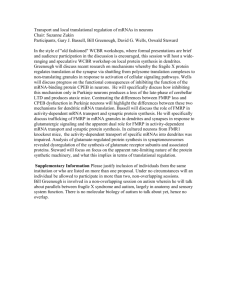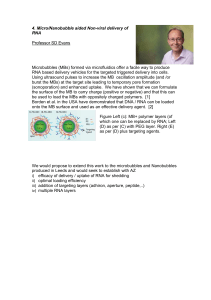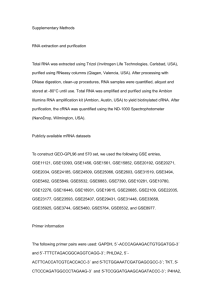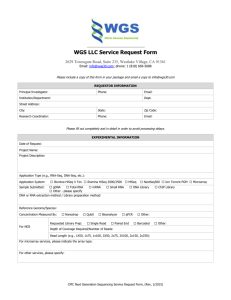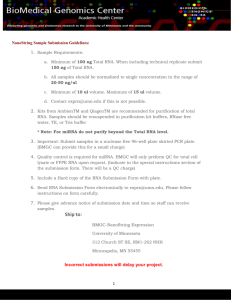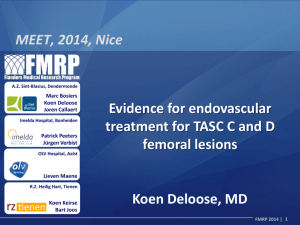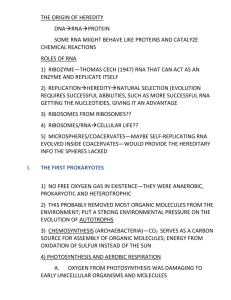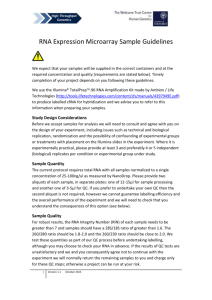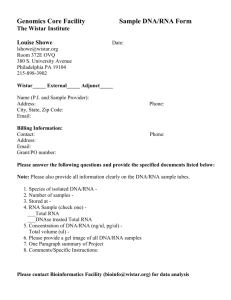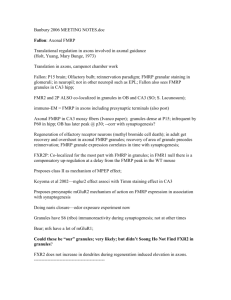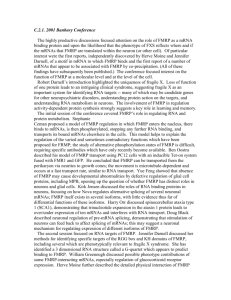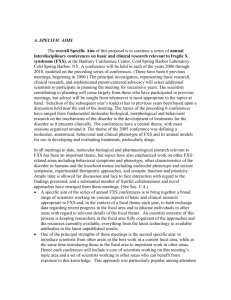APRA ANALYSIS OF THE IN VIVO RNA TARGETS OF THE
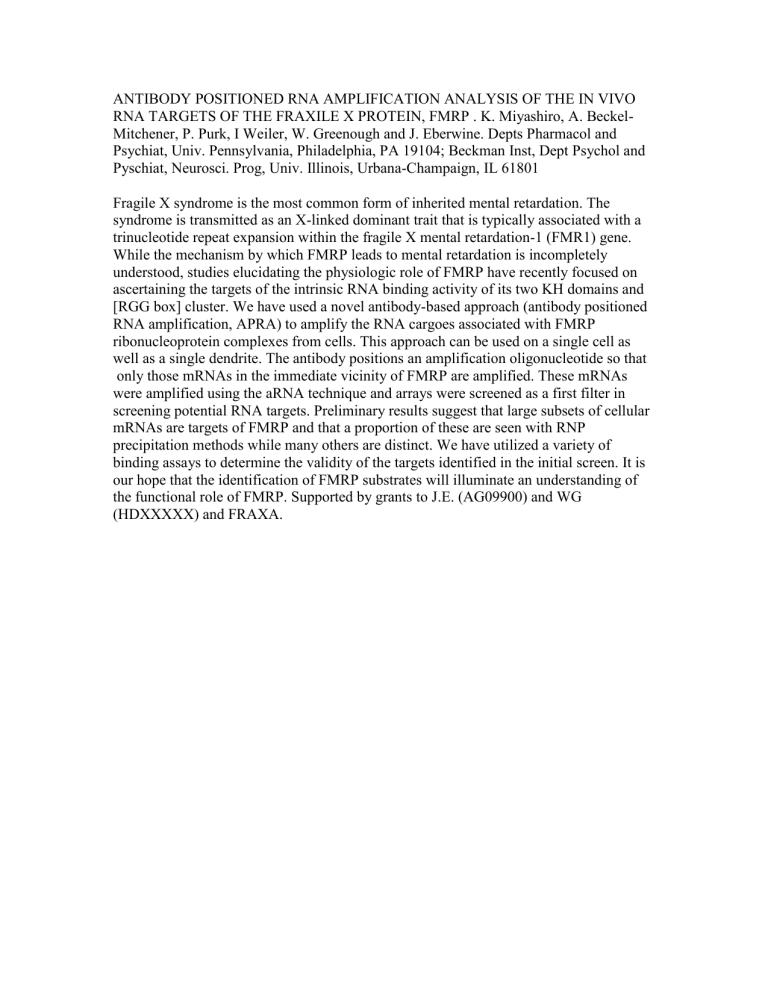
ANTIBODY POSITIONED RNA AMPLIFICATION ANALYSIS OF THE IN VIVO
RNA TARGETS OF THE FRAXILE X PROTEIN, FMRP . K. Miyashiro, A. Beckel-
Mitchener, P. Purk, I Weiler, W. Greenough and J. Eberwine. Depts Pharmacol and
Psychiat, Univ. Pennsylvania, Philadelphia, PA 19104; Beckman Inst, Dept Psychol and
Pyschiat, Neurosci. Prog, Univ. Illinois, Urbana-Champaign, IL 61801
Fragile X syndrome is the most common form of inherited mental retardation. The syndrome is transmitted as an X-linked dominant trait that is typically associated with a trinucleotide repeat expansion within the fragile X mental retardation-1 (FMR1) gene.
While the mechanism by which FMRP leads to mental retardation is incompletely understood, studies elucidating the physiologic role of FMRP have recently focused on ascertaining the targets of the intrinsic RNA binding activity of its two KH domains and
[RGG box] cluster. We have used a novel antibody-based approach (antibody positioned
RNA amplification, APRA) to amplify the RNA cargoes associated with FMRP ribonucleoprotein complexes from cells. This approach can be used on a single cell as well as a single dendrite. The antibody positions an amplification oligonucleotide so that
only those mRNAs in the immediate vicinity of FMRP are amplified. These mRNAs were amplified using the aRNA technique and arrays were screened as a first filter in screening potential RNA targets. Preliminary results suggest that large subsets of cellular mRNAs are targets of FMRP and that a proportion of these are seen with RNP precipitation methods while many others are distinct. We have utilized a variety of binding assays to determine the validity of the targets identified in the initial screen. It is our hope that the identification of FMRP substrates will illuminate an understanding of the functional role of FMRP. Supported by grants to J.E. (AG09900) and WG
(HDXXXXX) and FRAXA.
